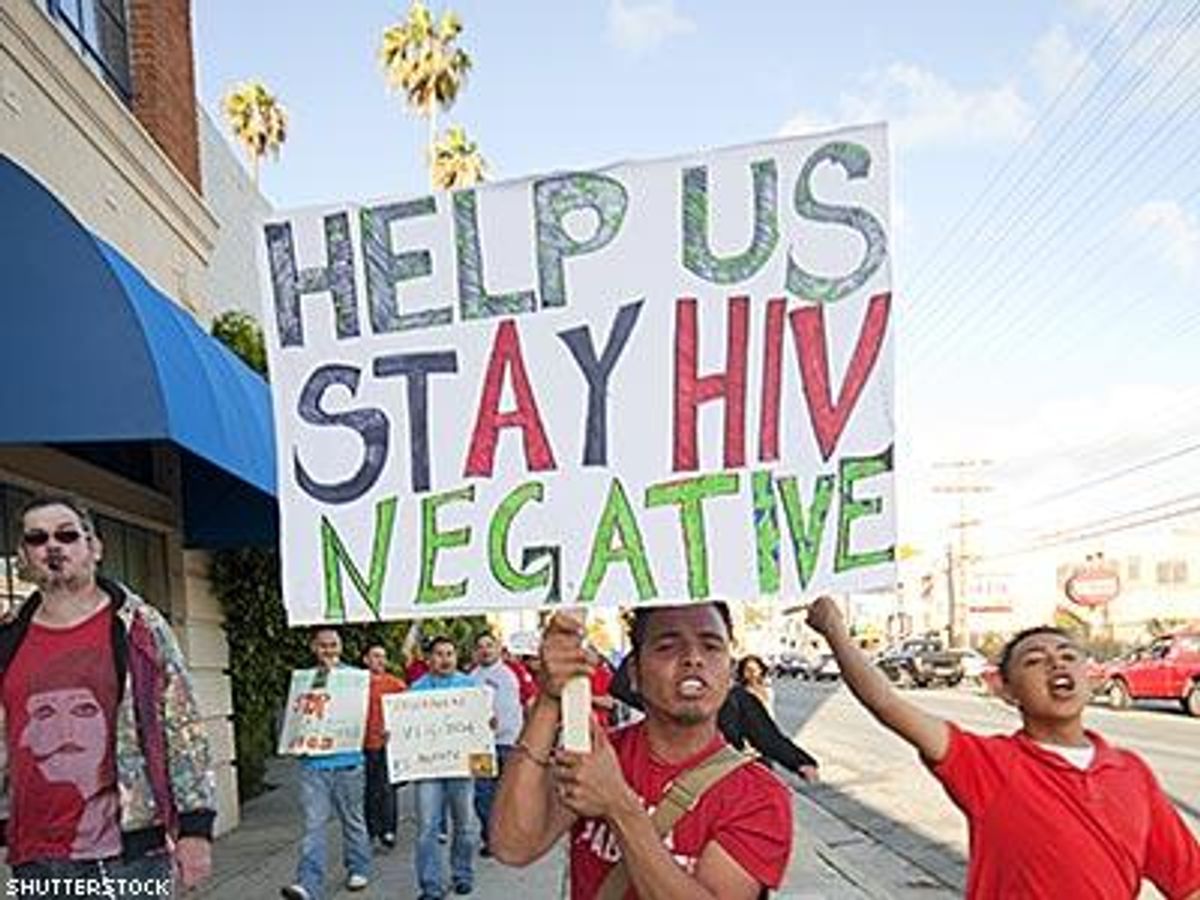A new report from the National Center for Health Statistics suggests that nearly half of all American adults living with HIV aren’t on antiretroviral medications. It's these medications that turn HIV from a death sentence into a manageable chronic condition. And not being on antiretroviral therapy (ART) doesn't just harm the person with HIV, studies have show that those on ART are less likely to pass the virus on to their sexual partners.
"Based on what we know nowadays, everyone who's HIV-positive should be on therapy," Dr. Carlos del Rio, co-director of the Center for AIDS Research at Emory University told Health Day.
The report, authored by Dr. Joseph Woodring and based on a survey of more than 10,000 people between 2007 and 2012, found that 0.39 percent of people aged 18 to 59 living in U.S. households were HIV-positive. Of those, only 52 percent were on antiretroviral medication.
"This highlights the challenges we have ahead because we have such an unequal epidemic." del Rio added. "HIV is a concentrated epidemic, and does not affect people equally."
The study shows HIV infection rates continue to be elivated amoung people considered to be at higher risk. People with more than 10 sexual partners in their lifetime had a 0.68 percent rate of infection. Men who had sex with other men had a 7.7 percent rate (versus 0.17 percent of men who reported no sexual contact with other men).
Men remain more likely to be HIV-positive than women and African Americans continue to have the highest rate of HIV at 1.6 percent; in fact blacks have an HIV rate seven times higher than any other racial or ethnic group.
Those numbers reflect "the enormous disparity" in the HIV epidemic, del Rio said. Dr. David Margolis, an HIV specialist at the University of North Carolina at Chapel Hill, told Health Day the findings weren't surprising; acknowledging there has been "little progress in getting diagnosis and care to enough of the affected populations."
del Rio said that the fact that 48 percent of HIV-positive people hadn't taken antiretroviral medications within the last month indicates a huge disparity between reality and the goals of the Joint United Nations Programme on HIV/AIDS (UNAIDS). The international organization hopes by the year 2020 that 90 percent of those who are HIV-positive know their status, 90 percent of those who have been diagnosed as HIV-positive are on antiretroviral medications, and 90 percent of those on treatment have no detectable viral loads.
Eli Rosenberg, an assistant professor of epidemiology at Emory University's Rollins School of Public Health, cautioned that the survey wasn’t all encompassing and relied on a relatively small number of HIV-positive respondents.
Still, Rosenberg admited, "What's clear is that the number of people not receiving effective therapy is high and at levels we should not tolerate as a society that cares about the medical state of its people."












































































